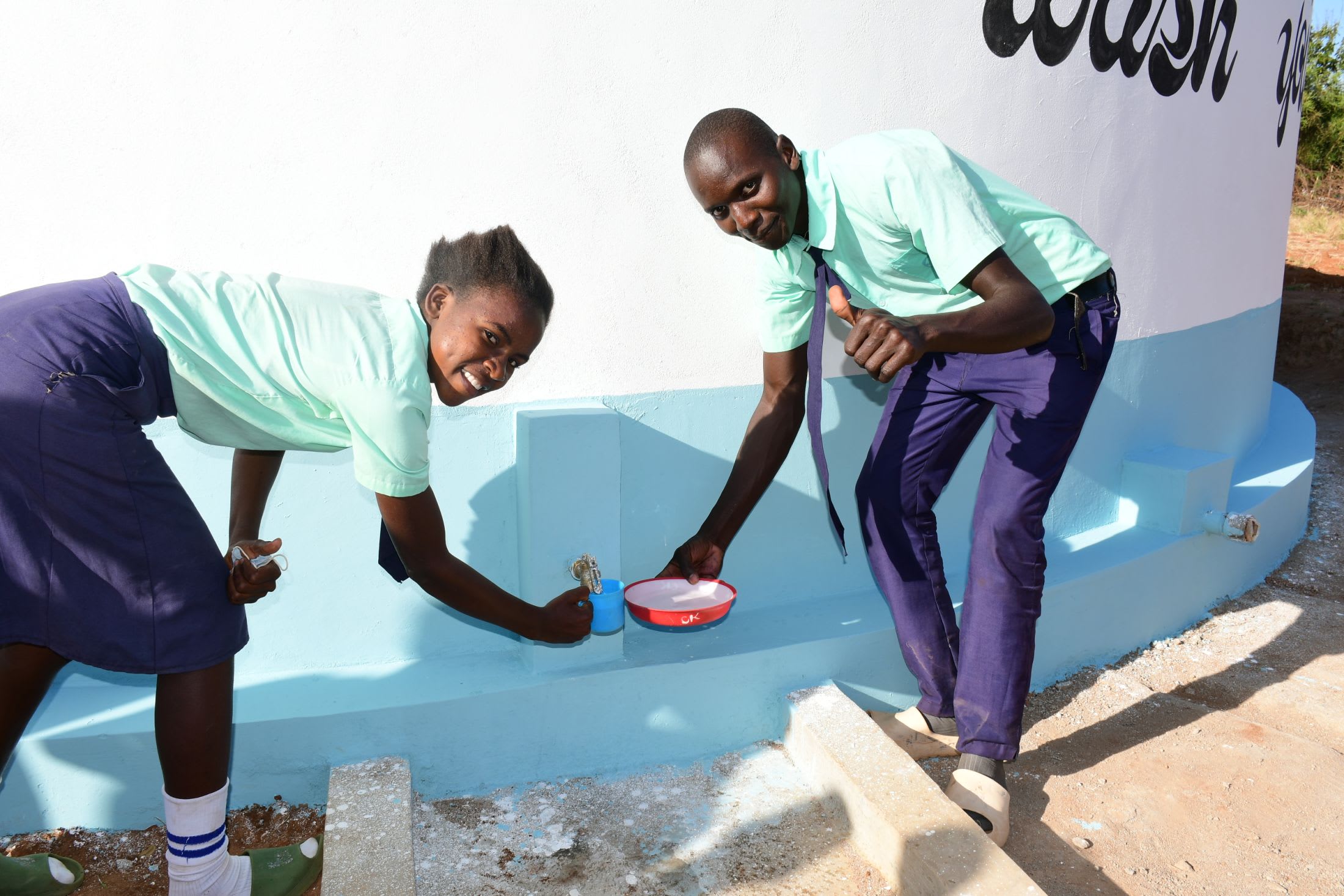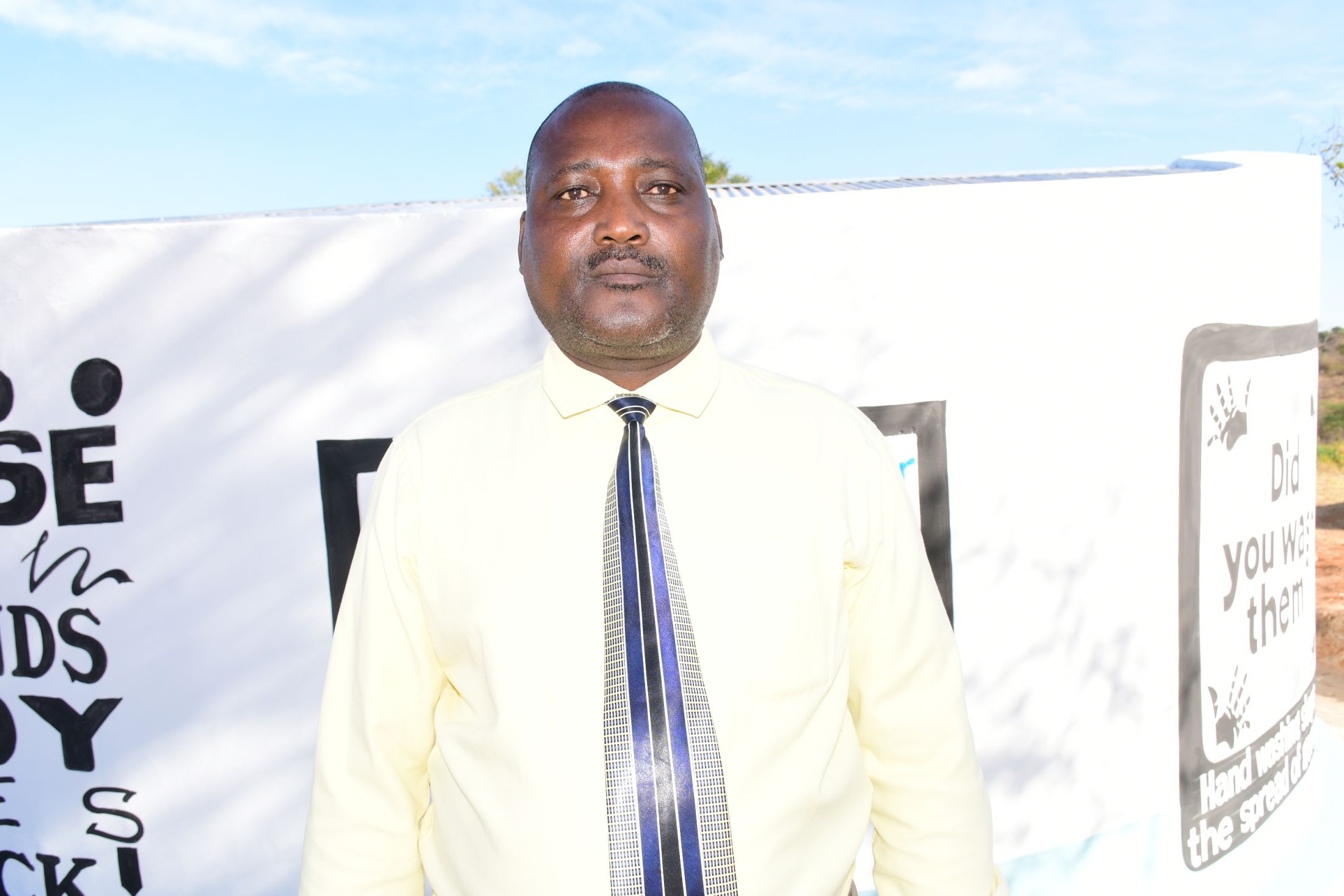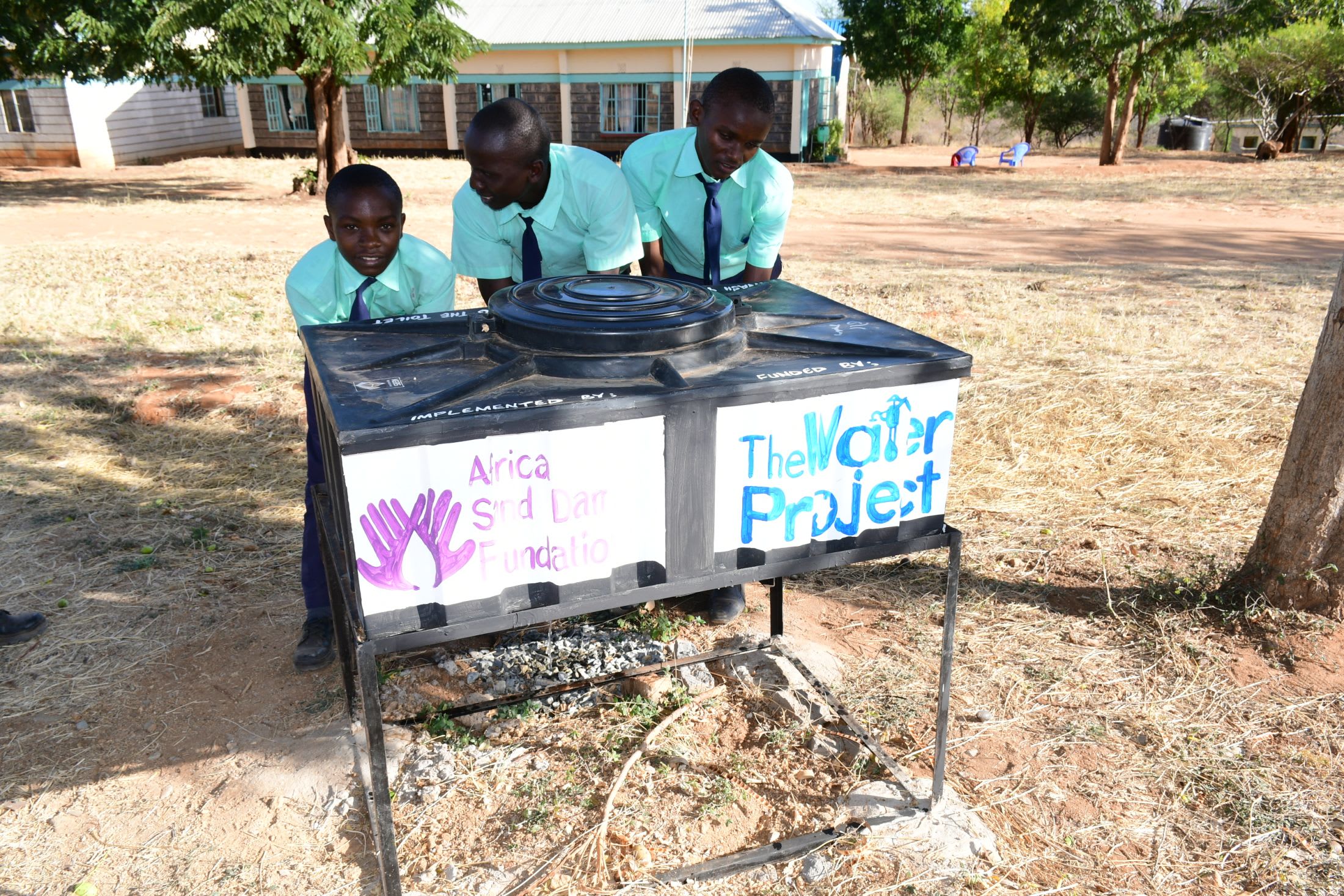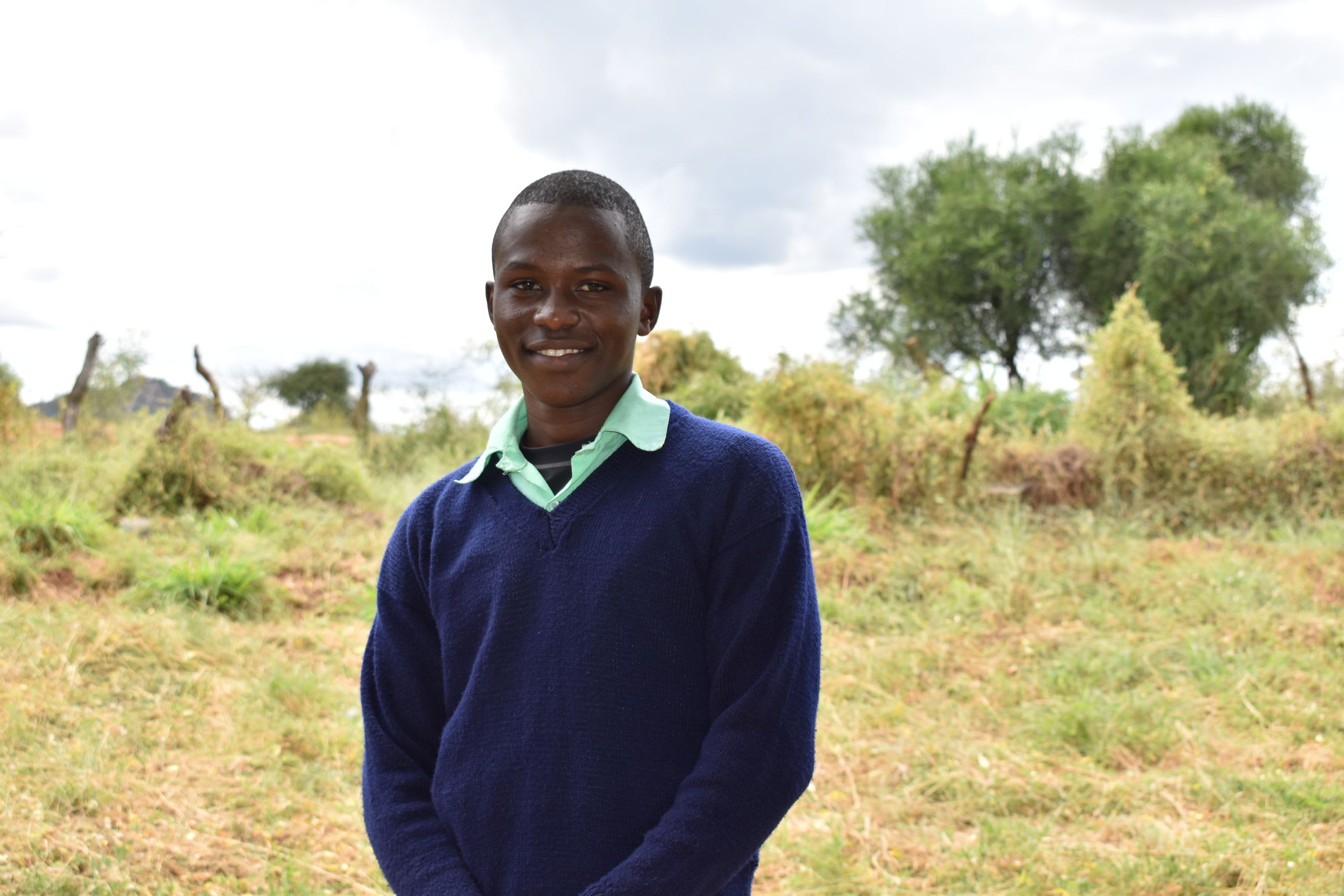The 180 students of Kivou Secondary School struggle to access sufficient, clean water to meet their daily needs. Without reliable water, it is hard for students to focus on learning. Seventeen-year-old student Francis is very familiar with the daily struggle.
"We do not have enough water in our school because we only have a few tanks in our school, that cannot store enough rainwater for all of us. This makes school very difficult since we sometimes come from games, only to find there is no water to drink."

Francis.
The school collects rainwater in small plastic tanks, but they inevitably run dry. When that happens, the school administration relies on contributions of water from parents or they must pay costly fees for a water delivery service. Sadly, the quality of the water is questionable since it is collected from unknown sources, exposing everyone to water-related illnesses like amoeba, typhoid, diarrhea, and stomach issues.

Students collect water.
"Although we are not asked to bring water from home, fetching water from the water tanks is frustrating because, during the drought period, the water vendors delay, which means water has to be rationed. We spend a lot of time scrambling for water at the tanks during breaks and resume classes late, which makes us perform poorly on various subjects," Francis shared.
The water crisis has a profound impact on every aspect of the students' day. Rationing of water leaves them thirsty and unsettled in class, which in turn has a negative effect on their academic performance. Insufficient water supply also hinders the maintenance of proper hygiene and sanitation measures at the school, leading to an uncomfortable environment for everyone.
Francis not only struggles with thirst and a challenging learning environment, but he also misses out on school because the little water available is likely to make him sick.
"It feels very uncomfortable to be sick when in school. Even using the latrines is no easy feat, because of the unpleasant odor that they emit. Last year when I was in Form One, I developed stomach upsets and had to seek permission to go home so that my parents could take me to the hospital," continued Francis.
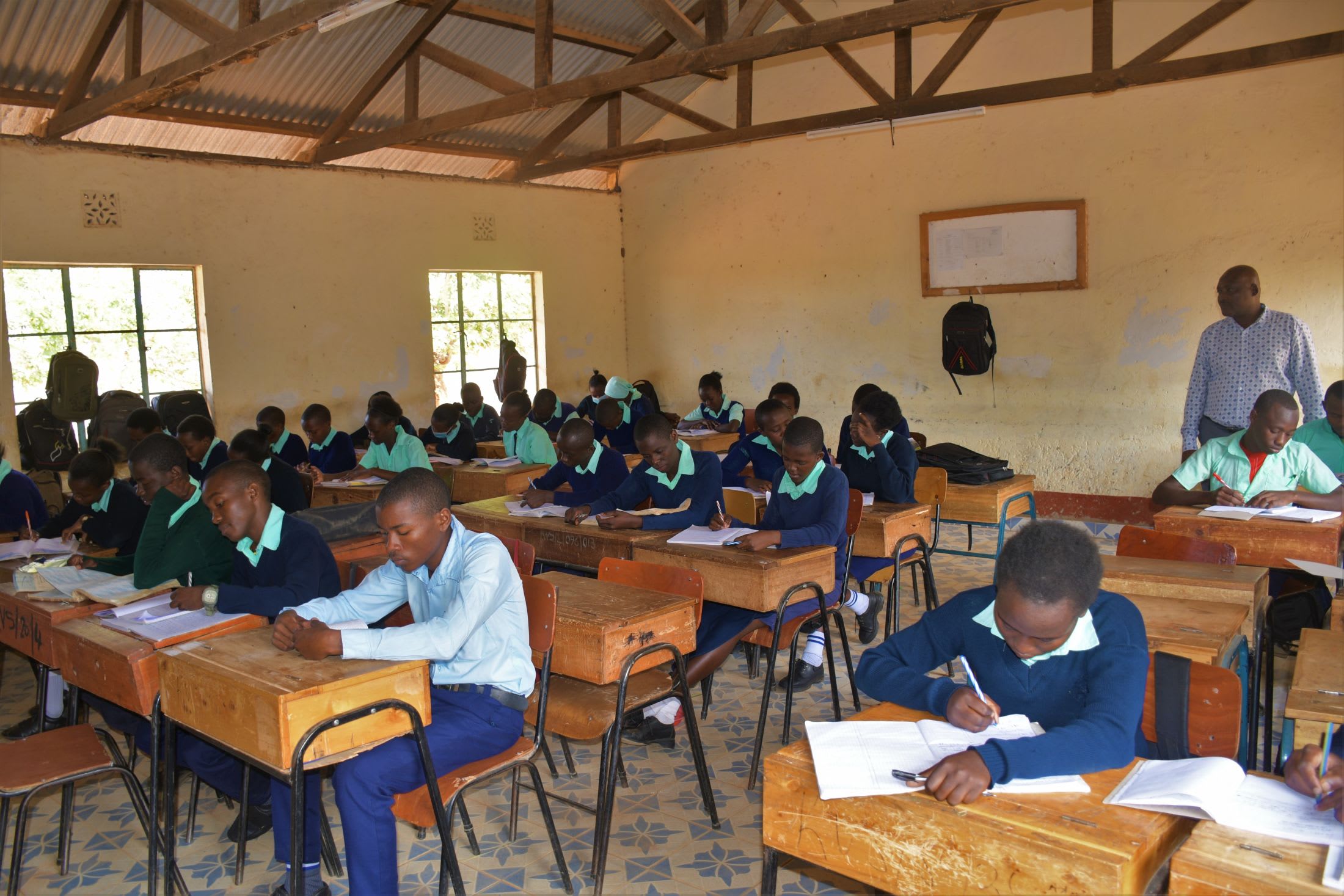
"The installation of a 104,000-liter rainwater tank will ensure students have a clean source of water to drink, thanks to its large capacity. Meals will always be prepared on time and the classrooms and other school facilities will be washed regularly enabling students to study in a conducive learning environment. It will also be easy to teach and learn subjects, like agriculture, because there is sufficient water for irrigation. The proposed project will also enable the school to get rid of water expenses and that money can be expended on other developmental activities," shared Field Officer Alex Koech.
Access to clean, safe water will give Francis and the other students the ability to stay in school comfortably and have access to a more well-rounded and engaging education. That will give them the opportunity to have the tools for a brighter future!
Steps Toward a Solution
Our technical experts worked with the local community to identify the most effective solution to their water crisis. Together, they decided to construct a rainwater harvesting system.
Rainwater Harvesting System
A rainwater collection system consists of gutters that channel rainwater effectively into large holding tanks. Attached to buildings with clean, suitable roofing, these systems are sized according to the population and rainfall patterns. Water can be stored for months, allowing for easy treatment and access. Learn more here!
Handwashing Stations
Alongside each water source, we install two gravity-fed handwashing stations, enabling everyone at the school to wash their hands. Handwashing is crucial for preventing water-related illnesses within the school and community. Student “health clubs” maintain the stations, fill them with water, and supply them with soap, which we often teach them how to make.
Community Education & Ownership
Hygiene and sanitation training are integral to our water projects. Training is tailored to each community's specific needs and includes key topics such as proper water handling, improved hygiene practices, disease transmission prevention, and care of the new water point. Safe water and improved hygiene habits foster a healthier future for everyone in the community. Encouraged and supported by the guidance of our team, a water user committee representative of the community's diverse members assumes responsibility for maintaining the water point, often gathering fees to ensure its upkeep.

 Rainwater Catchment
Rainwater Catchment
 Rehabilitation Project
Rehabilitation Project












